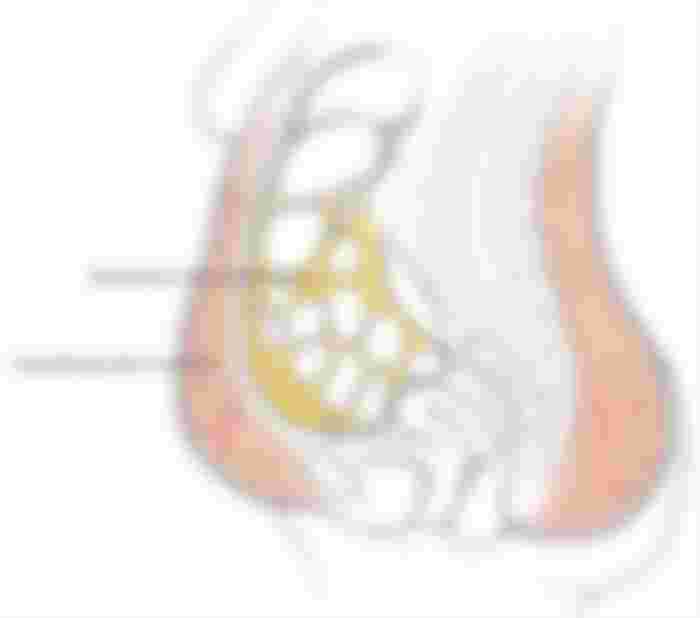This is what happens to the fat when someone loses weight.
Fat has made a resurgence in recent years. Of course, everyone is thinking about dietary fat, which has nine calories per gram and is preferred by ketogenic diet followers. When it comes to the fat we carry within our bodies, the situation is different.
Obesity has not always been prevalent. Carrying a few extra pounds was once considered wealth because it indicated that you could afford to eat healthily. We then swung to the other extreme when the fashion industry became obsessed with anorexic models. As for eating disorders, melancholy and anxiety infiltrated popular culture, and they wreaked havoc on our psyche. We are still reeling from the impact of that swerve.
It is hardly unexpected that there is a correlation between wealth and fat. Your body stores fats and carbohydrates to ensure that you never run out of adenosine triphosphate (ATP), the molecules that act as batteries in your cells. Your body's account requires ATP if a debit is required.
Two types of fat: GOOD and BAD
We aim for optimal energy balance at a healthy weight—enough stored energy for when you need it, but not so much that it accumulates as visceral fat, typically around your abdomen. Because our bodies are excellent at storing fat, a lack of stored fat can lead to reproductive problems. Our primary concern now is that we consume too much and are plagued by many metabolic, cardiovascular, and immune-related disorders that clog hospital corridors.
It is important to remember that fat is necessary for good health. Some fat cells are kept in the liver, while others are stored in the muscles. Many of them are employed for resting metabolic activities that burn between 1,300 and 1,600 calories (about 128 minutes (about 2 hours) of running) each day. The remainder is scattered throughout your body as adipocytes; each contains tens of billions of these fat cells.
Subcutaneous fat is a form of fat deposited beneath the skin and is required by the body. Visceral fat, which behaves differently in your body, is the issue. When excess energy concentrates around your stomach, it also collects a variety of vitamins, hormones, and contaminants, the latter to keep them away from your organs. While this may appear to be a good thing, accumulating pollutants and poisons might be dangerous eventually, especially if you lose weight too quickly.

What happens to the fat?
How do you start losing weight? Always, it is by breathing. While "burning" fat is not wrong, losing weight requires your body to expel a large amount of carbon dioxide. The Washington Post reports:
[Researchers] discovered that a human must inhale approximately three pounds of oxygen to burn one pound of fat, initiating metabolic processes that produce slightly less than three pounds of carbon dioxide (just slightly more than the average amount exhaled by a human on any given day) and about a pound of water. Water can exit the body in many ways, including diarrhea, pee, sweat, saliva, and other physiological fluids. Still, most weight loss occurs through the lungs.
Your fat "escapes" and floats to the surface of the water. (And no, it has nothing to do with global warming.) Eliminating it also eliminates other vitamins and pollutant storage. While this may not appear to be a positive thing, it is preferable to be free of them eventually.
According to Popular Science, organochlorine insecticides, among other contaminants, bind to fat and leach into our food supply.
Although our bodies do not appear to store enough of them to be dangerous, their continuous accumulation leaves us vulnerable to exposure. They begin to reappear when you lose weight.
If you lose weight at a healthy rate, the tiny number of pollutants created will not flood your bloodstream (1-2 pounds per week). They will vanish in an instant, courtesy of your urine. On the other hand, extreme dieting is a different matter. Weight loss increases the number of toxins (along with vitamins and, in women, estrogen) that enter your system (excess vitamins can be fatal, while more significant estrogen stored in fat raises your risk of breast cancer).
Because we no longer face the same issue as our ancestors—most of us do not have to decide whether to eat today or tomorrow—fat storage takes on a new role in our bodies. This surplus of energy, hormones, and toxins results in many preventable health problems. According to some researchers, a healthy lifestyle that includes improved nutrition and more physical activity can resolve 70% of our medical issues.
Additionally, the fat exhaled into the atmosphere eventually serves as fuel for plants, one of the primary meals we want to return to our bodies. We refer to a rhythmic cycle, which has molded human evolution and is still necessary for optimal health today.
